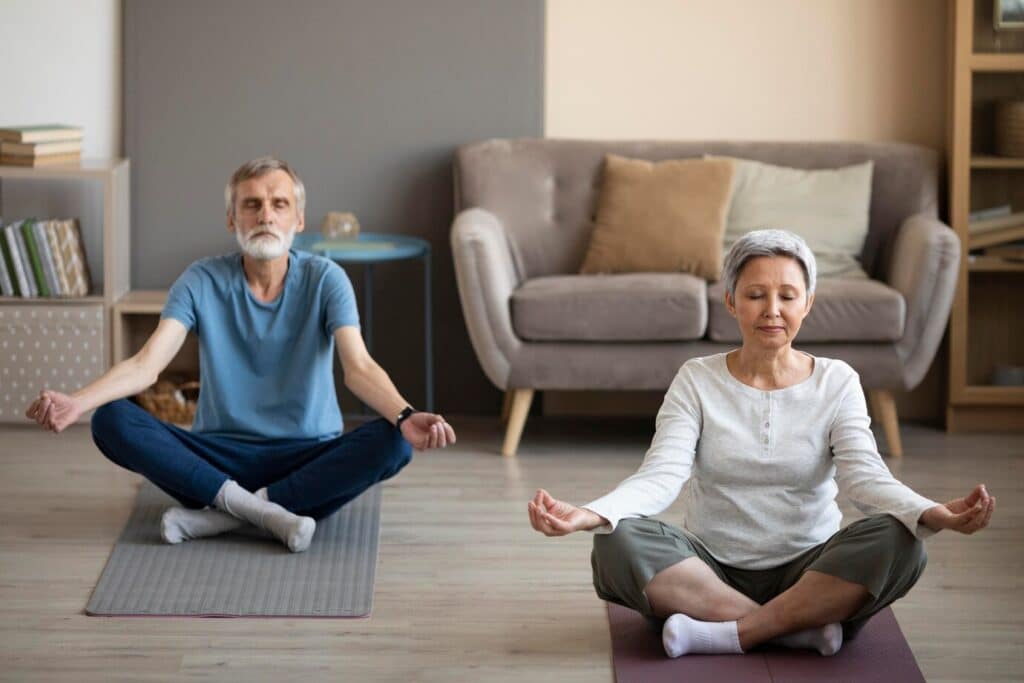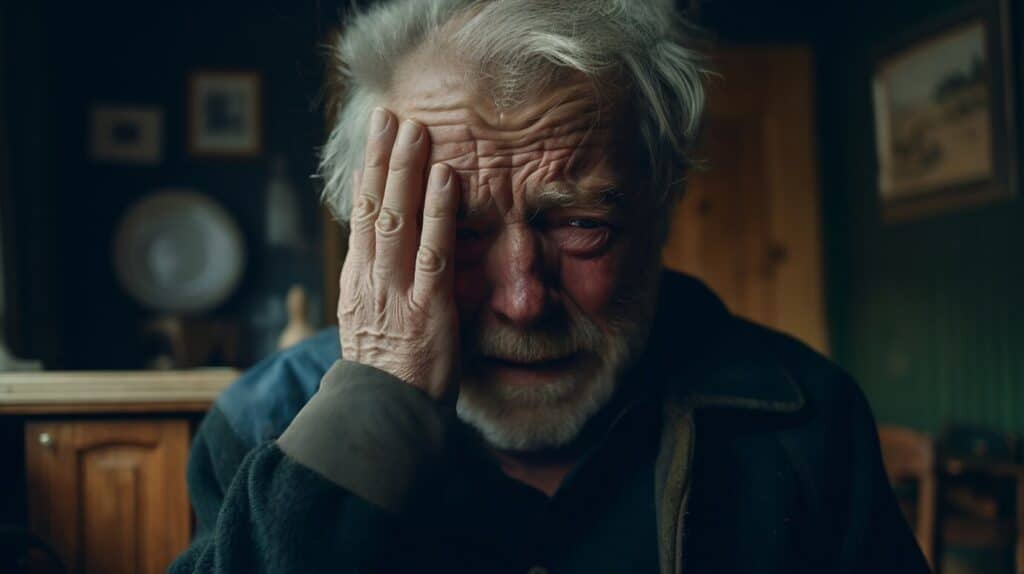10 Relaxing Activities That Help With Anxiety
Did you know that nearly 30% of adults experience anxiety disorders at some point in their lives? It’s an everyday struggle, but effective ways exist to find peace and balance. If you’re looking for ways to calm an anxiety attack or reduce everyday stress, integrating relaxation techniques can be a game-changer. You can manage anxiety and improve your well-being by incorporating simple, relaxing activities into your routine. At Westmont Living, we believe in the power of relaxation techniques to help our residents thrive.
Let’s explore ten activities that could offer you the relief you’re seeking, starting with some easy techniques you can practice daily.
Deep Breathing Exercises
Deep breathing exercises can be a powerful tool for reducing anxiety immediately. Focusing on your breath can create a sense of calm and control. Start by inhaling slowly through your nose, allowing your abdomen to expand fully. Hold that breath momentarily, then exhale steadily through your mouth, releasing tension. This controlled deep breathing increases oxygen flow, helping to ground you in the present moment. As you practice consistently, you’ll notice a marked improvement in your anxiety management. Whenever you feel overwhelmed, take a few minutes to engage in these exercises. Incorporating mindfulness techniques into your routine can further enhance the calming effects of deep breathing.
Mindfulness Meditation
Building on the calming effects of deep breathing, mindfulness meditation offers another effective way to alleviate anxiety. This practice encourages you to focus on the present moment, making it easier to release anxious thoughts. Dealing with anxiety when alone can feel overwhelming, but meditation provides a structured way to regain control of your thoughts and emotions. You can create a serene mental space by incorporating mindful breathing and visualization techniques. Additionally, incorporating body-centered relaxation techniques can enhance your ability to manage stress effectively.
Progressive Muscle Relaxation
Progressive Muscle Relaxation (PMR) is an effective method for reducing tension and promoting calmness. This technique involves systematically tensing and relaxing different muscle groups in your body, fostering self-awareness and control. Practicing PMR regularly can be beneficial for activities for anxiety for students, especially those dealing with academic stress. Additionally, nurturing social connections can further support emotional wellness and alleviate feelings of anxiety.
Yoga for Stress Relief
Yoga is one of the most effective fun stress relief activities for adults. It combines physical movement, breathing exercises, and mindfulness, all of which contribute to reducing anxiety. Whether practicing gentle Hatha yoga or dynamic Vinyasa, this activity strengthens your body while calming your mind. Each session lets you focus on controlled breathing and intentional movement, helping you release tension and regain emotional balance. This mindful connection alleviates stress and fosters compassion toward yourself and others.

Journaling for Emotional Clarity
Journaling can be an invaluable tool for understanding emotions and recognizing triggers that contribute to anxiety. Engaging in reflective writing provides clarity and personal insight, making it a fantastic option for anxiety-related activities for students dealing with academic or social pressures. Patterns emerge by consistently documenting thoughts and feelings, helping individuals develop strategies for managing stress effectively.
Guided Imagery Techniques
Guided imagery allows you to create mental scenarios that evoke relaxation and peace. When feeling overwhelmed, imagine yourself in a serene environment, such as a quiet beach or a peaceful forest. This technique is especially helpful for calming an anxiety attack, as it quickly shifts focus away from distressing thoughts and onto a calming visualization. By practicing regularly, you can train your mind to respond more calmly to stressors.
Aromatherapy for Calmness
Calming scents like lavender, chamomile, and sandalwood can help reduce stress and anxiety. Aromatherapy is an easy, natural method for reducing anxiety immediately. Essential oils can be diffused, added to a warm bath, or used in massage to enhance relaxation. This simple yet effective technique supports emotional balance and helps cultivate a peaceful atmosphere at home.
Nature Walks and Outdoor Activities
Stepping outside and engaging in outdoor activities can profoundly affect your mental well-being. Spending time in nature is one of the most effective fun activities for anxiety for adults, as it allows you to reset mentally and focus on the present moment. Whether hiking, gardening, or simply sitting in a park, exposure to natural elements has been shown to lower stress hormones and improve mood.
Engaging in Relaxing Hobbies
Hobbies like painting, playing music, or reading can provide a creative outlet for emotions. Engaging in fun stress relief activities for adults fosters mindfulness and relaxation. These activities offer an escape from stress and allow for a sense of accomplishment and joy, helping to reduce anxiety levels over time.

Connecting With Loved Ones
Anxiety can feel isolating, but connecting with supportive friends and family can make a difference. Engaging in shared activities—like cooking, game nights, or simple conversations—enhances emotional well-being. Whether seeking comfort or laughter, social interaction plays a crucial role in dealing with anxiety when alone. Even small gestures, like sending a thoughtful message, can strengthen emotional connections and alleviate stress.
Incorporating these relaxing activities into your routine can make a real difference in managing anxiety. Whether you need ways to calm an anxiety attack or are looking for fun activities for anxious adults, prioritizing mental well-being is essential. Just 10 minutes of mindfulness meditation can reduce stress levels by 30%. You’re taking crucial steps toward a calmer, more centered life by practicing deep breathing, yoga, or even a simple nature walk. Remember, it’s okay to seek moments of peace and connection—your journey to relaxation is important and worthwhile. For more support, feel free to contact Westmont Living at 858-456-1233.
How Do The Costs Of Moving Into A Quality Senior Care Community Compare With The Costs Of Staying At Home?Compare The Costs of Senior Living vs Staying at Home
Frequently Asked Questions
What is the 3-3-3 rule for anxiety?
The 3-3-3 rule is a grounding technique for managing anxiety by focusing on the present moment. First, look around and name three things you see. Then, identify three sounds you hear. Lastly, move three body parts, such as your fingers, toes, or shoulders, to reconnect with your physical sensations and reduce anxiety.
What activities are suitable for people with anxiety?
Activities that promote relaxation and mindfulness are beneficial for reducing anxiety. Regular exercise, such as walking, yoga, or swimming, helps release stress-reducing endorphins. Mindfulness practices like meditation, deep breathing exercises, or journaling can also calm anxious thoughts. Additionally, engaging in creative hobbies, such as drawing, gardening, or listening to soothing music, can provide distraction and relief.
How do you bring down anxiety naturally?
Natural methods for reducing anxiety include regular physical activity, adequate sleep, and balanced nutrition, as these support overall mental health. Mindfulness practices, such as meditation, deep breathing exercises, and progressive muscle relaxation, can quickly calm anxious feelings. Spending time outdoors in nature has been shown to lower stress hormones and enhance mood. Limiting caffeine and alcohol, both of which can exacerbate anxiety symptoms, is also recommended.
What is the 5-minute rule for anxiety?
The 5-minute rule involves committing to doing a feared or stressful task for just five minutes to overcome anxiety-driven procrastination. After five minutes, you may stop if you choose, but often, people find it easier to continue once they’ve started. This approach reduces feelings of being overwhelmed and breaks tasks into manageable segments. It helps build confidence and resilience by demonstrating that anxiety can be faced incrementally.








